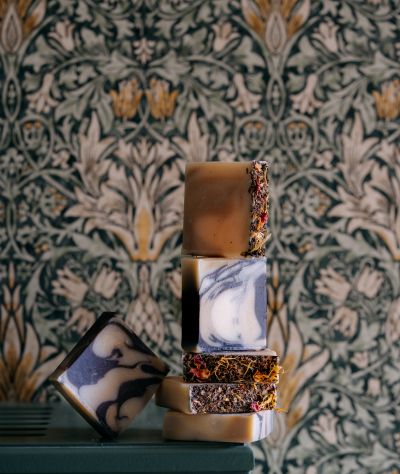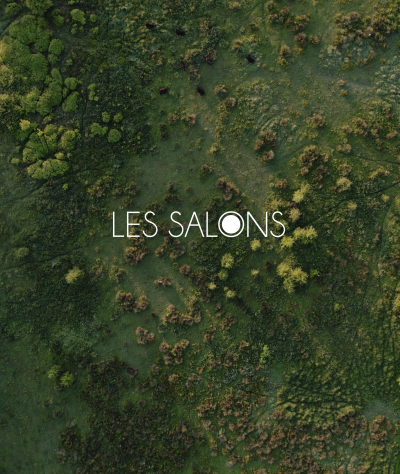A key to another world
Petra Stienen on leaving, longing and belonging
Words - Ankie Bosch, Images - Jonathan Vos
She greets with a hand on her heart. After more than two years of social distancing, Petra Stienen has kept the ritual. It suits her. With her open glance, she can make the gesture feel like a warm embrace, the heartfelt curiosity of a conversation partner who wants to know all about the world and anyone in it. “Sometimes, you have to travel far to find out the treasure is next to your front door.”
Maybe it lies in what she calls the ‘space in between’, the space she used to search for as a diplomat. Maybe it is the childlike curiosity that never left her. Or, as she points out toward the end of our conversation, her determination to find joy in every day. “I get my energy from a nice balance between movement, meaning and joy”, she explains. “For a long time, I did not dare to choose joy. But now I know that being able to enjoy life is important for meaning to make sense.”
Now, she starts her days thinking about how she is going to find gratitude. And with a WhatsApp message to her mother, asking her what she is thankful for and what she is looking forward to. Petra has the ability to speak straight to the heart. We ask her about her childhood. Her profession. And where she finds the sense of belonging we all crave.
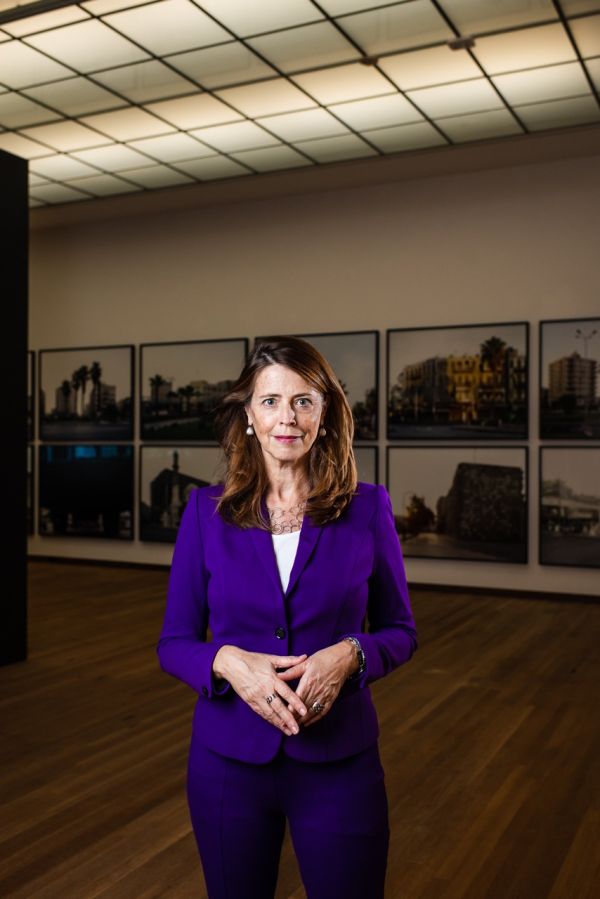
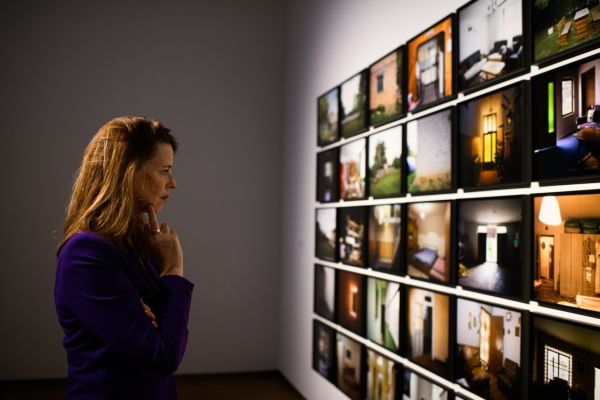
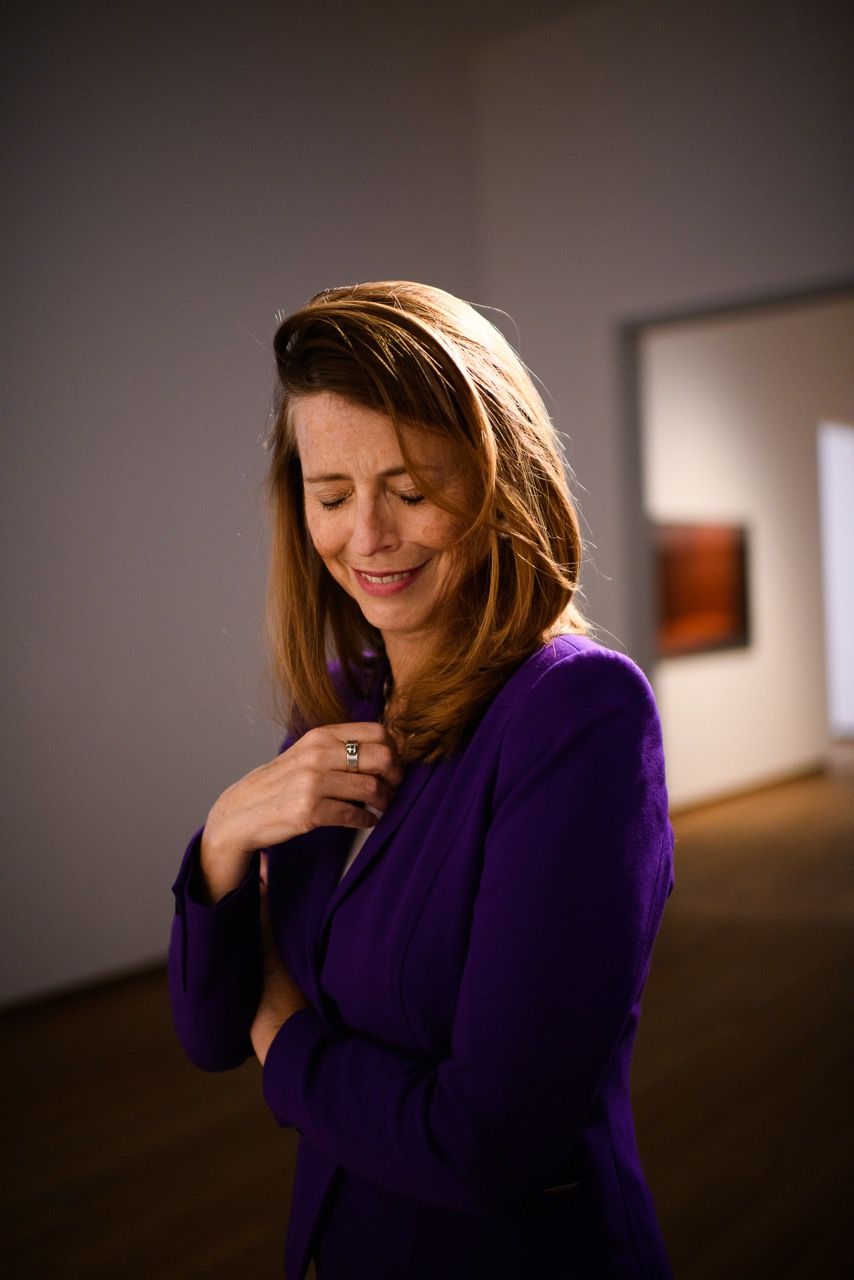
Childhood days
“I grew up on the Donderberg in Roermond, on the 'other side of the railway', in a neighbourhood with a zip code that raised eyebrows. I didn't dare to invite friends to my house. My world was small. Eindhoven, 50 kilometres north, was far for my parents. At the weekends, we went to the farms belonging to my mother’s side of the family. I played with the sheepdogs. My grandfather would show me how the peas grew.
I was a curious child who discussed with the driver of the library bus which titles to take home. I would drag the newspaper out of our mailbox. Slowly I moved from the neighbourhood into the world, and the world came to live in the neighbourhood. In retrospect, I am grateful for growing up there. That childhood gave me a life experience that came in useful later on. But I also saw that things were much easier for my friends who lived on the other side of town. We know that now too: the education of your parents, your social class, your skin colour, your religion, do make a difference.”
Leaving (behind)
“Recently, I visited a museum which featured a wood workshop similar to where my grandfather once worked. As a child, I often visited his wood shed. I was reminded of the smell the moment I entered the workshop. That visit took me back to the 1930s when my grandfather lived there as a vagabond. Back to when I was eight. And I felt connected to him, in the here and now.
In the book 'Uncountable Identities' Sinan Çankaya describes the pain of social risers. If you grow up somewhere and move to a different class, people will often consider you as a newcomer, almost as a migrant. And the people from your original environment might complain that you left them. That is how I feel sometimes. If you leave, you also leave something behind.”
Longing
“'The Other Side of Silence', an exhibition by the Syrian-Armenian photographer, Hrair Sarkissian, (on show until 14 May 2023 in Bonnefanten Maastricht, ed.) tells a similar story. His art is about the intergenerational grief of leaving. About the longing for what was, the connection to your family story. About how the silence increases your pain.
‘Where do you belong?’, Sarkissian asks. His unique story touches everyone. For when you hear another person's story, you are touched by your own. It confirms your right to exist: you are allowed to be. That is art. It questions how you look, what you hear, and what you see and feel. Even if you have no connection to Syria or Armenia.”
Belonging
“‘Home is where you are a local, where you belong’, Taiye Selasi says in her famous Ted Talk. To me, it means being in a place where you can exist. I feel at home in Syria and Egypt. Long after I left as a diplomat, people would ask, 'where were you? I haven't seen you for so long! Friends make time for you right away. They don't say, like here, 'in three weeks, I have an hour'. I have a full life, but I will find time tomorrow or the day after.
Belonging is also connected to generosity. Do we dare to allow ourselves to be at home in different places? Do we dare to grant the other what we ask for ourselves? Some of my family members moved to Canada in the 1950s because there were no opportunities here, for fear of another war. Are those stories so different from today’s refugee stories? Why don't we tell them?”
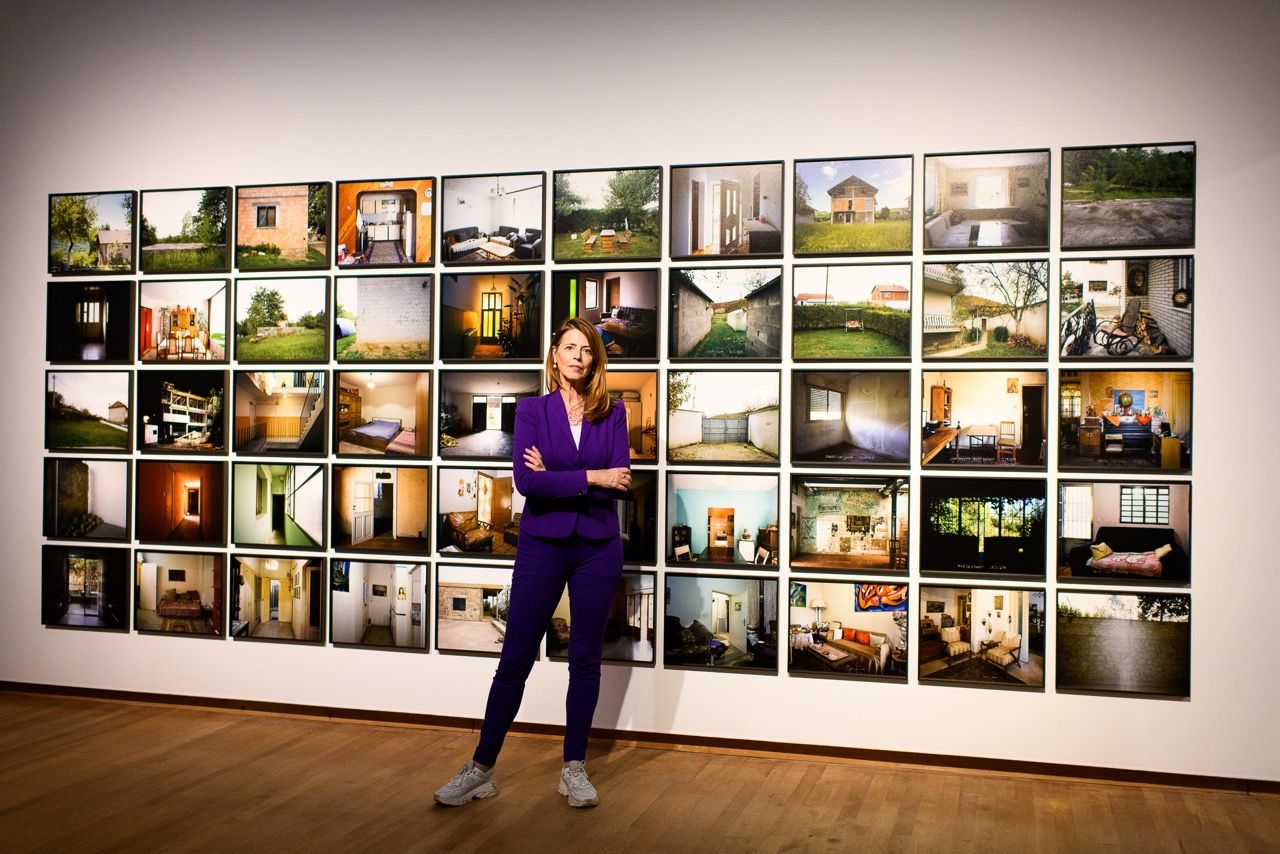
I grew up in the 1970s, Catholicism and its patriarchy were everywhere. Fortunately, religion has more sides. There are the institutions, the laws, the rituals, and faith. I call myself a religious person because of faith, which is a moral compass, and rituals. But I refuse any label. Bible school taught me that God is everywhere, in all beings. To me, the idea that your inner voice is a connection to the universe is beautiful. It gives me a lot of guidance.”
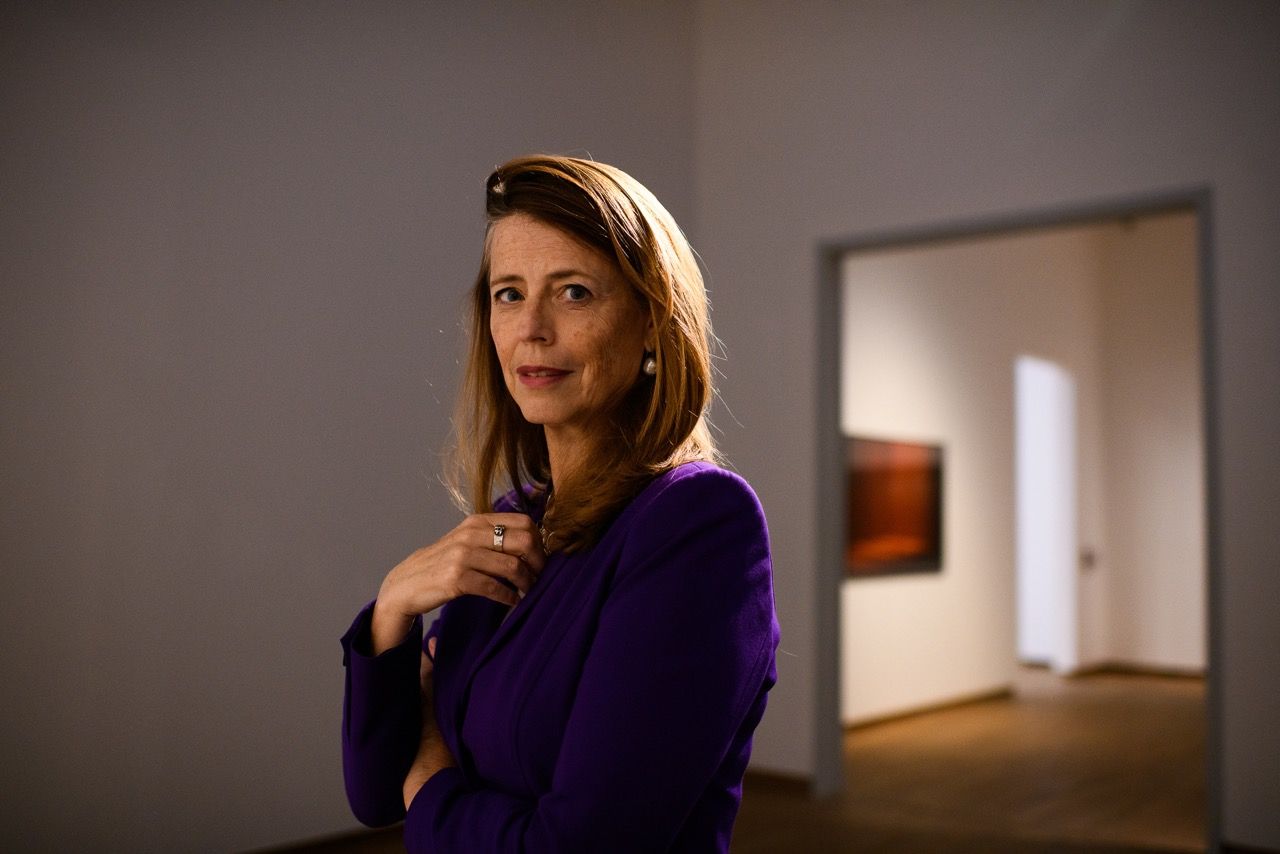
We all have a responsibility; the individual takes care of the collective, and the collective takes care of you. I got to know the beauty of faith, and that family can be something to cherish, because the family tree aligns the individual. It made me look at my origins differently. I finally saw the depth of it. Sometimes you have to travel far to find out the treasure is next to your front door.”
The Arab world
"I choose to study Arabic because of a paper written by a friend. Geography, history, languages, religion in people's lives: I found it all interesting, and Arabic touches it all. Arabic is the language of Islam, music, beautiful books, and calligraphy. Language is a key to another world. I learned to read from left to right, Arabic is read from right to left: Imagine what that does to how you view the world! It increased my problem-solving skills.
I studied in Leiden, Cairo and London, where I was a member of a Jewish-Palestinian dialogue group, the third interested and independent voice at the table: a nice, diplomatic role. I felt that this was what I wanted to do, and I still consider diplomacy to be the most beautiful profession there is. Diplomacy is about reducing the distance between two people. How can you truly see the other person and their interests? And how can you seduce the other to see yours? How do you create an in-between space in which a conversation continues to be possible?
Culture is important for creating that in-between space. Culture touches people's hearts. And only when hearts are open can reason come in. The importance of this diplomatic space is underestimated. Being diplomatic does not mean being vague. Instead, it means being clear and outspoken with respect, which is increasingly necessary: in neighbourhoods, cities, and in the world. The balance between listening and speaking is crucial. And by listening, I mean listening to the undercurrent. What happens there?”
From border to steppingstone
“Theo Bovens (the former Queen's Commissioner in Limburg, ed.) often says: 'Limburg makes The Netherlands bigger'. I have come to appreciate that more and more. Limburg has the longest border of all Dutch provinces. Your personality will largely determine how you experience that border. Is it a boundary or a window to Europe?
Worldwide, people living on the so-called periphery, often unconsciously, feel at times ignored by the centre. But where is the centre exactly? And is it really a problem to be further away from it? I would like our politicians and policymakers to be a little more courageous. Change often comes from the periphery, since the centre is preoccupied with maintaining its power. If we focus on the strengths of Limburg and recognise that tradition and culture can be in balance with change and ambition, that long border could be a stepping stone to Europe.”
Book tip
The Friendship - Conny Palmen
She is the Limburg ‘queen of literature’, says Petra Stienen. “I am a huge fan of Connie Palmen’s work and recommend all her books, especially to international guests.”


